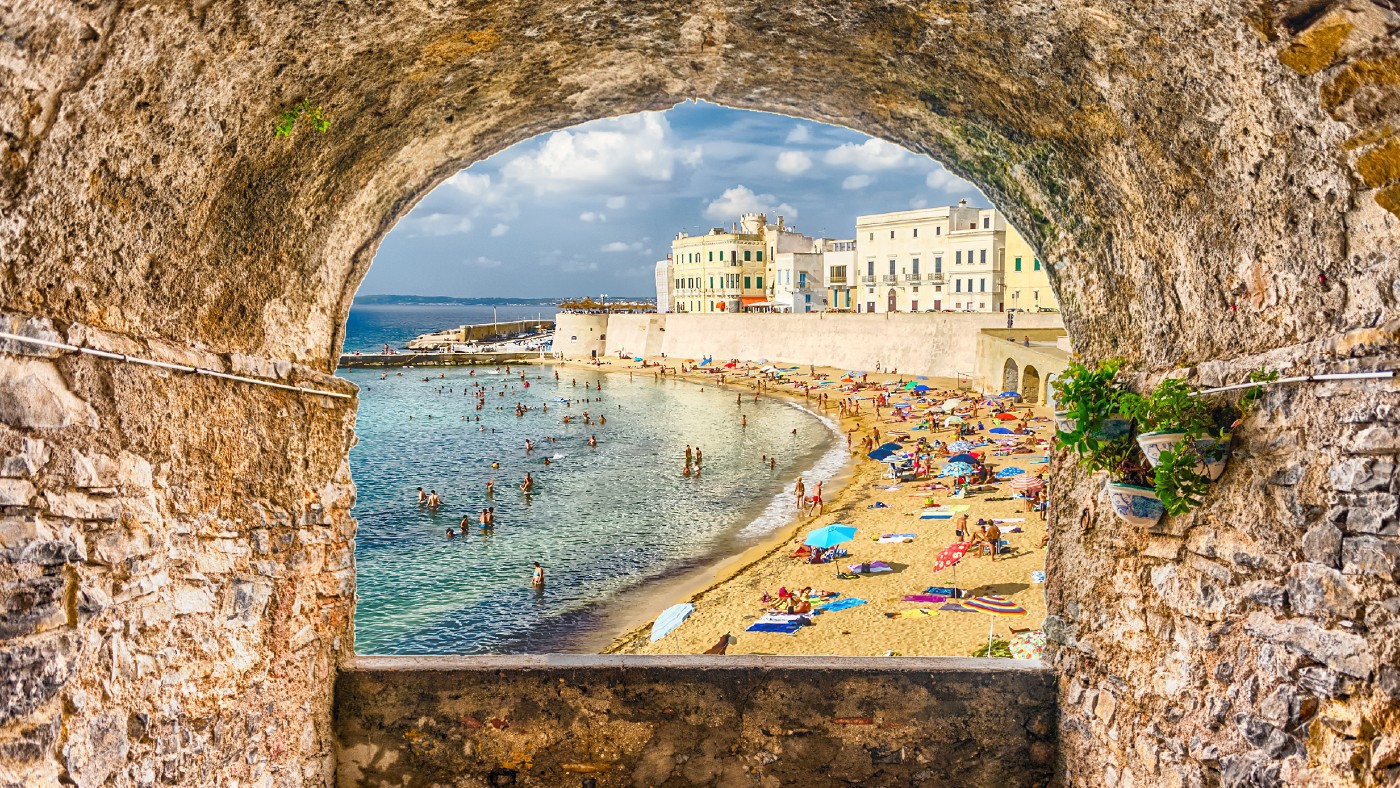Trip of the week: the languid charm of summers in Puglia
Perched on the very edge of Europe, this southern Italian region has an island-like feel

A free daily email with the biggest news stories of the day – and the best features from TheWeek.com
You are now subscribed
Your newsletter sign-up was successful
Owing to its growing popularity with foreign tourists, it’s been described as “the new Tuscany” – but the southern region of Puglia, the heel of the Italian boot, is radically different from its northern counterpart, says Stanley Stewart in Condé Nast Traveller.
Perched on the very edge of Europe and all but surrounded by the sea, it feels like an island – “a place apart” – its white “cubist” houses reminiscent of North Africa, its labyrinthine towns of the backstreets of Istanbul. It is gritty, “raw edged” and “flooded with ocean light”, and its climate is so warm that people from elsewhere in Italy come here to sunbathe in October. They are drawn by its food, too, and by its “simplicity”. Puglia to them is “dolce far niente – the sweet languor of doing nothing”.
Although one of the poorest regions of Italy now, it was once “the centre of the known world”. Greeks, Romans, Byzantines, Arabs, Normans, Venetians and Turks all came here “in search of fame and fortune”. And the memory of those days lingers in the “echoing” palaces and “barn-like” churches in its towns, and in its ancient fortified farmhouses, or masserie, many of which have been transformed into luxury properties. In Salento, the region’s southernmost stretch – a “stark, bony place” where wild figs, pomegranates and “contorted” olive trees grow in profusion – ancient watchtowers gaze across the Adriatic towards the mountains of Albania.
The Week
Escape your echo chamber. Get the facts behind the news, plus analysis from multiple perspectives.

Sign up for The Week's Free Newsletters
From our morning news briefing to a weekly Good News Newsletter, get the best of The Week delivered directly to your inbox.
From our morning news briefing to a weekly Good News Newsletter, get the best of The Week delivered directly to your inbox.
On Salento’s west coast, the beautiful city of Gallipoli sits on a promontory “like a ship, halfway to Africa”, and along its east coast lie glorious towns such as Santa Maria di Leuca, where St Peter is said to have landed on his way to Rome. But the “star turn” not only of Salento but of the whole of southern Italy is Lecce, “the Florence of the south”, a city “like a film set”, with great restaurants, contemporary art galleries, and some wonderful and unusual baroque architecture.
A free daily email with the biggest news stories of the day – and the best features from TheWeek.com
-
 6 of the world’s most accessible destinations
6 of the world’s most accessible destinationsThe Week Recommends Experience all of Berlin, Singapore and Sydney
-
 How the FCC’s ‘equal time’ rule works
How the FCC’s ‘equal time’ rule worksIn the Spotlight The law is at the heart of the Colbert-CBS conflict
-
 What is the endgame in the DHS shutdown?
What is the endgame in the DHS shutdown?Today’s Big Question Democrats want to rein in ICE’s immigration crackdown
-
 Bad Bunny’s Super Bowl: A win for unity
Bad Bunny’s Super Bowl: A win for unityFeature The global superstar's halftime show was a celebration for everyone to enjoy
-
 Book reviews: ‘Bonfire of the Murdochs’ and ‘The Typewriter and the Guillotine’
Book reviews: ‘Bonfire of the Murdochs’ and ‘The Typewriter and the Guillotine’Feature New insights into the Murdoch family’s turmoil and a renowned journalist’s time in pre-World War II Paris
-
 A dreamy long weekend on the Amalfi Coast
A dreamy long weekend on the Amalfi CoastThe Week Recommends History, pasta, scenic views – this sun-drenched stretch of Italy’s southern coast has it all
-
 6 exquisite homes with vast acreage
6 exquisite homes with vast acreageFeature Featuring an off-the-grid contemporary home in New Mexico and lakefront farmhouse in Massachusetts
-
 Film reviews: ‘Wuthering Heights,’ ‘Good Luck, Have Fun, Don’t Die,’ and ‘Sirat’
Film reviews: ‘Wuthering Heights,’ ‘Good Luck, Have Fun, Don’t Die,’ and ‘Sirat’Feature An inconvenient love torments a would-be couple, a gonzo time traveler seeks to save humanity from AI, and a father’s desperate search goes deeply sideways
-
 A thrilling foodie city in northern Japan
A thrilling foodie city in northern JapanThe Week Recommends The food scene here is ‘unspoilt’ and ‘fun’
-
 Tourangelle-style pork with prunes recipe
Tourangelle-style pork with prunes recipeThe Week Recommends This traditional, rustic dish is a French classic
-
 Samurai: a ‘blockbuster’ display of Japan’s legendary warriors
Samurai: a ‘blockbuster’ display of Japan’s legendary warriorsThe Week Recommends British Museum show offers a ‘scintillating journey’ through ‘a world of gore, power and artistic beauty’